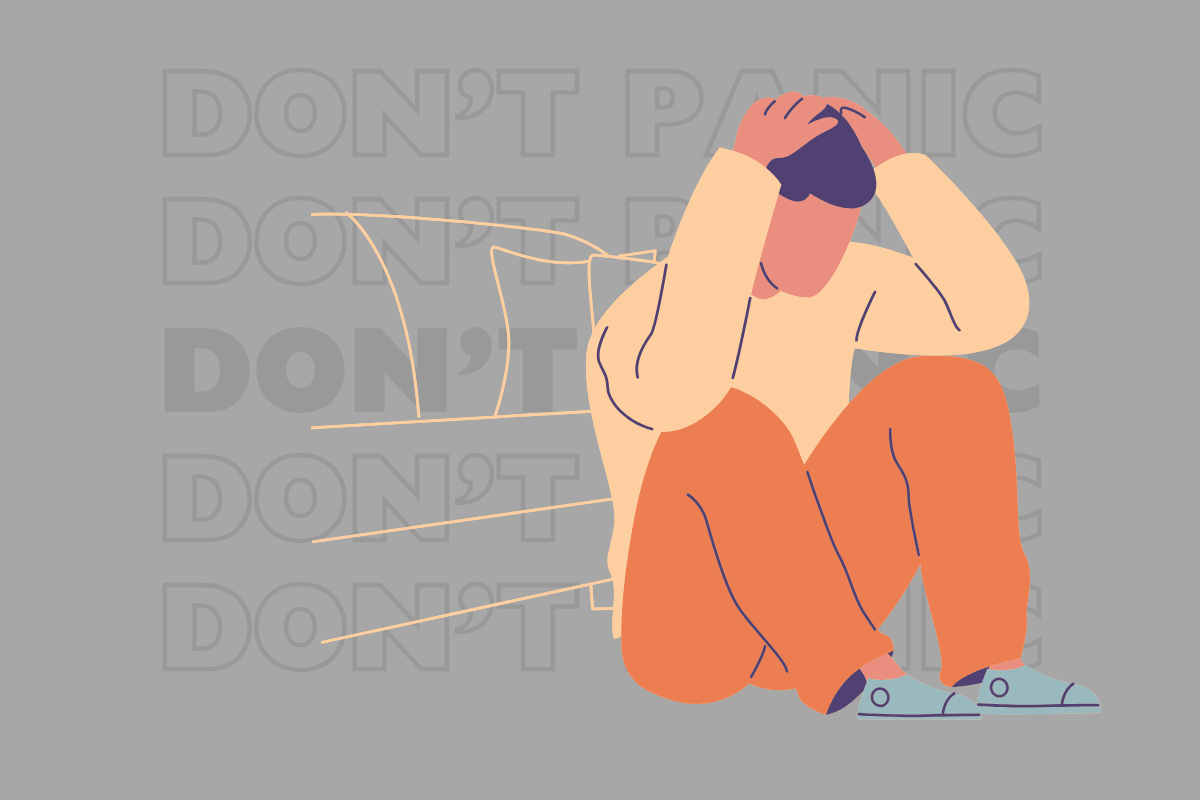Last Friday morning could have been any typical weekday in our house.
The kids woke up, complained that they didn’t want the breakfast that was on the table, ate it anyway, got dressed, went to the bathroom and still had a few minutes to play on their tablets before it was time to get ready go outside and wait for the school bus.
There was just one difference.
After the tablets went away, but before shoes went on, my wife had our older son practice responding to his middle name, “just in case.”
Before he was born, my wife and I surveyed the available names based on the family members we wanted to name him after, and settled on a Hebrew name that isn’t common here in the U.S. (even in neighborhoods like ours, with a significant Jewish population), but is quite common in Israel. We liked the sound, we liked the meaning and we liked the connection to our heritage. When it came time to choose his middle name, though, we went with a very common English name, figuring it might someday be more convenient for him to use professionally.
We certainly never really imagined sending an email like the one my wife sent last Thursday night, instructing our older son’s teachers that in the event of an antisemitic attack, they should address him by his middle name.
It’s not that we expected the calls for a “Global Day of Jihad” from a former Hamas leader to have actual results in our fairly typical Long Island suburb. When my wife asked me if I thought that she was crazy, and that sending the e-mail and engaging in the subsequent “middle name practice” were going overboard, I wanted to tell her, “Yes.”
I wanted to, but I couldn’t.
I thought about the letter I’d seen in the Times of London — shared last week on social media — in which a London doctor described her daughter being told to leave her blazer at home when attending her Jewish day school, while her male classmates have been advised to cover their kippot with baseball caps.
In that context, having our son be prepared to answer to his middle name — and his teachers be prepared to call him by it — doesn’t sound crazy at all.
Again, I expected everything to be fine, the same way I expect my children to one day graduate from high school without ever having to put their fire drill training to use. The problem is, though, that just as I can’t rule out the possibility of a fire at school, I can’t rule out the possibility that my son’s school is going to be the place where a would-be jihadist decides to make trouble.
I suppose I never really could rule it out, but it certainly wasn’t anything I gave a whole lot of thought to. I could think of the stories I heard from my father about growing up in Detroit in the 1950s and ‘60s — when Jewish-owned businesses carried names like “Glendale Electronics,” after the street it was located on, instead of “Dishel’s Electronics,” after the family who owned it — and tell myself that that was there and then, and this was here and now.
To be perfectly honest, there’s still a great deal of truth to that. Sure, there’s the occasional nagging thought that the menorah and dreidel inflatables we put on the front lawn at Hanukkah might attract a troublemaker, and we’ve gotten used to police presence and/or private security at our synagogue, but more often than not, the threats we’ve been on guard against haven’t felt quite so specific.
I’ve long thought of myself as “functionally white,” an acknowledgement that I’ve mostly experienced antisemitism indirectly — a swastika painted in a nearby park that was gone before I could see it; the aforementioned need for security presence at synagogue — even though previous generations of my family and current generations of others have had different experiences. Now, though, I can’t honestly say that I feel like that description truly fits.
I find myself thinking back to an article that my friend Alice Gomstyn wrote for the now defunct Babble back in 2014, about the discomfort of taking comfort in the fact that her children have their father’s last name, which is “as un-Jewish as it can be without being, say, Christianson or DeJesus.”
“I’m not worried about someone spray-painting a swastika on my house or shattering my windows when I light my menorah this winter,” Gomstyn wrote. “I don’t fear that my sons will be subject to the same slurs that dogged their grandparents. And I’m well aware that my concerns don’t hold a candle to those of parents whose children live in immediate danger in war zones or whose quality of life is hampered every day by racism, sexism, harassment and persecution.”
Along similar lines, my wife and I never had any thought of keeping our kids out of Hebrew school last week, and we all joined our congregation outdoors that night for a candlelight service praying for a swift and peaceful end to the current conflict, as well as the safe return of hostages. Not too long from now, we’ll get out our Hanukkah decorations as we normally would, and for us, as best as I can tell, life will go on as normal.
Still, we can’t help but play the “what if” game in our heads. What if there is trouble here? What if our kids are accosted at school over what’s happening in Israel, or about being Jewish in general? And if it doesn’t happen now, what about the next time? After all, as we’ve unfortunately learned, there’s always a next time.
The reality is that as long as we’re playing the “what if” game in our heads, we’ll also be playing the “middle name game” with our son, just in case.
And unfortunately, that’s a game that has no winners.








